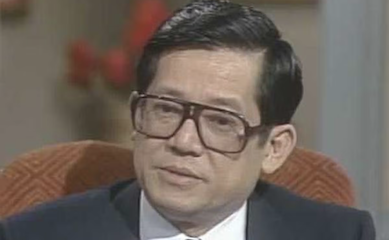
Benigno “Ninoy” Simeon Aquino, Jr. (1932-83, age 51). A Filipino senator, opposition leader, and political martyr whose assassination in 1983 became a catalyst for the People Power Revolution that overthrew the Marcos dictatorship. Benigno “Ninoy” Aquino Jr. emerged as one of the most prominent critics of Ferdinand Marcos and became a symbol of democratic resistance in the Philippines. [Luce Index™ score: 87/100]
Born into a politically influential family in Tarlac Province, Aquino demonstrated exceptional leadership abilities from an early age. He became the youngest governor in Philippine history when elected to lead Tarlac at age 22, and later served as the youngest senator at age 35. His charismatic personality, oratorical skills, and political acumen quickly established him as a rising star in Philippine politics and a potential presidential candidate.

Aquino’s political career took a dramatic turn when Marcos declared martial law in 1972. As one of the most vocal critics of the authoritarian regime, Aquino was among the first to be arrested and imprisoned. During his seven-year incarceration, he became an international symbol of human rights and democratic opposition. Despite facing military tribunals and death sentences, Aquino maintained his commitment to nonviolent resistance and continued to advocate for Philippine democracy from his prison cell.
In 1980, Aquino was allowed to travel to the United States for medical treatment following a heart attack. During his three-year exile, he became a prominent spokesperson for the Philippine opposition movement, speaking at universities, think tanks, and congressional hearings. Aquino used this platform to expose the human rights abuses and corruption of the Marcos regime while building international support for democratic restoration in the Philippines.
Against the advice of family and supporters, Aquino decided to return to the Philippines in August 1983, despite receiving credible death threats. He famously declared, “The Filipino is worth dying for,” expressing his willingness to sacrifice his life for his country’s freedom. On August 21, 1983, Aquino was assassinated moments after stepping off the plane at Manila International Airport, sparking widespread outrage and mass protests throughout the Philippines.
Aquino’s martyrdom galvanized the Philippine opposition movement and transformed his widow, Corazon Aquino, into a reluctant political leader. The public outcry over his assassination, combined with economic instability and international pressure, ultimately led to the People Power Revolution of 1986 that restored democracy to the Philippines. Manila International Airport was later renamed Ninoy Aquino International Airport in his honor.
The legacy of Ninoy Aquino extends beyond his role as a political martyr. His commitment to democratic principles, nonviolent resistance, and social justice continues to inspire Filipino politicians and civil society activists. His famous quote, “The Filipino is worth dying for,” remains a rallying cry for Philippine patriotism and democratic values. Aquino’s sacrifice is commemorated annually on Ninoy Aquino Day, a national holiday in the Philippines.